We recently wrapped up our creation series at New Creation Lutheran Church, and I find myself reflecting on where we are as a world, as a country, and as a church. The topic of stewardship of the earth feels more urgent than ever. Global warming and climate change continue to spark controversy. What once might have been a scientific discussion has become a political and cultural dividing line.
In today’s climate, not only do some deny science, but others seem to push back against anything remotely connected to it. Yet as followers of Christ, our response shouldn’t depend on politics or popularity. It should depend on faith. Scripture gives us a clear call: God placed humanity in creation not as owners, but as caretakers.
“The Lord God took the man and put him in the Garden of Eden to work it and take care of it.” — Genesis 2:15
From the very beginning, we were entrusted with a holy responsibility. Stewardship of the earth is not a political issue, it’s a spiritual one. God calls us to tend, protect, and use wisely what has been given. That call hasn’t changed, even if the world around us has.
What Does Stewardship of the Earth Mean?
When we talk about stewardship, we often think of financial giving or the wise use of personal resources. But biblical stewardship extends far beyond budgets and balance sheets. It’s about recognizing that everything we have – our time, our abilities, our relationships, and yes, our planet – belongs to God.
Being a good steward of creation can mean many things. For some, it’s about protecting natural resources: conserving water, reducing waste, planting trees, or restoring habitats. For others, it’s about protecting the environment: reducing pollution, cutting back on fossil fuels, and supporting sustainable energy. These are all good and faithful efforts. But maybe it starts with something simpler – using less, consuming wisely, and wasting less.
The truth is, we don’t need to save the entire planet single-handedly to make a difference. God rarely calls us to fix everything at once, but God often calls us to start somewhere. When we choose small acts of care, they ripple outward in ways we might never see.
The Example of Our Church
At New Creation, we’ve tried to live out this call in practical ways. Several years ago, we installed solar panels on our roof. It was an investment in both creation and our future. The panels help reduce our carbon footprint and significantly lower our electric bills. In this case, being good stewards of the earth also made us better stewards of our finances. Clean energy and fiscal responsibility can go hand in hand.
We’ve also taken a look at our property and landscaping. We used to water the grass extensively, trying to maintain that perfect lush green lawn. But California’s drought cycles and reduced snowpack have made that unsustainable. So, we cut back. The grounds may not look as manicured as before, but conserving water is part of caring for creation. Again, it’s a balance: beauty matters, but faithfulness matters more.
Inside the church, we’ve made smaller but meaningful changes. We recycle paper, reuse materials where possible, and switched from disposable communion cups back to washable ones. That one change alone saves hundreds of plastic cups from the landfill each month. None of these steps are flashy. They’re not going to make headlines. But they make a quiet difference, and they remind us that stewardship is not a one-time project; it’s a daily practice.
The Balance of Creation
God designed a world full of delicate balances. Ecosystems rely on interdependence: water, air, plants, animals, and humans each play their part. When we overuse or misuse any resource, that balance is disrupted. Sometimes it happens gradually, over decades. Other times, the impact comes faster and harder.
We’ve all seen examples of imbalance. Deforestation affects rainfall patterns and soil health. Overfishing disrupts food chains. Burning fossil fuels contributes to air pollution and changing weather. But balance is not as simple as replacing one resource with another. Every form of energy – solar, wind, nuclear, or fossil fuel – comes with tradeoffs. Manufacturing solar panels and batteries has its own environmental costs. Mining lithium or rare metals impacts the earth too. So what does faith tell us about navigating these choices?
Balance requires humility. We must be willing to look honestly at both sides of every decision, and to pray for wisdom that goes beyond our own understanding. Proverbs 3:5-6 reminds us:
“Trust in the Lord with all your heart and lean not on your own understanding; in all your ways submit to him, and he will make your paths straight.”
Being a faithful steward doesn’t mean pretending that every answer is clear or easy. It means staying open to God’s guidance, weighing the cost and the consequence, and striving for balance in all things.
Everyday Acts of Stewardship
Most of us can’t install wind turbines or re-engineer the global energy grid. But we can take simple steps that add up over time. Here are a few ways individuals, families, and churches can live out stewardship in daily life:
- Recycle and reuse
Sort recyclables, reuse containers, and avoid single-use plastics where possible. Even modest recycling habits make a measurable difference over the years. - Choose reusables for church and home
Switch to washable dishware for fellowship events, cloth napkins instead of paper, and refillable coffee stations instead of disposable cups. It saves money and reduces waste. - Use less energy
Turn off lights when rooms are empty, set thermostats responsibly, and consider LED lighting. At home, unplug electronics that draw power even when idle. - Conserve water
Fix leaks, install low-flow faucets, and water plants early or late in the day. Every drop saved helps maintain local water tables and reduces strain on reservoirs. - Shop and consume wisely
Buy products with minimal packaging. Support local farmers and businesses. Avoid fast fashion and cheap, disposable goods that quickly end up in landfills. - Plant and nurture green spaces
Whether it’s a tree in your yard, a community garden, or native plants around the church, green spaces help absorb carbon, provide shade, and restore biodiversity. - Educate and involve others
Share ideas at church. Start small projects – battery recycling bins, clothing drives, or a monthly “green tip” in the bulletin. Each effort reinforces the value of care.
When we practice stewardship together, we create habits that become culture. And when a culture of care takes root, it becomes part of our witness to the world.
Faith Over Fear
Conversations about climate and creation often carry an undertone of fear – fear of disaster, loss, or hopelessness. But the Christian story is one of hope. We believe in renewal and resurrection, not despair. Paul writes in Romans 8 that “creation itself will be set free from its bondage to decay and will obtain the freedom of the glory of the children of God.” That doesn’t mean we wait passively for God to fix everything. It means we join in God’s ongoing work of restoration.
Every time we choose stewardship over waste, care over neglect, we participate in that redemption. We bear witness to a Creator who cares not only about people but about all creation.
Stewardship as Worship
It’s easy to forget that caring for the environment is an act of worship. When we reduce waste, conserve water, or plant a tree, we are saying thank you to God in a tangible way. Worship is not confined to hymns and prayers; it also includes the way we live out gratitude.
Psalm 24 begins with a powerful declaration:
“The earth is the Lord’s, and everything in it, the world, and all who live in it.”
If the earth belongs to God, then our relationship to it must be marked by respect and gratitude. That means treating creation as sacred, not disposable. Every mindful choice – every time we resist waste, honor resources, and make sustainable choices – is a small act of reverence.
A Call to Collective Action
Individual actions matter, but collective effort multiplies the impact. Churches, schools, and community groups have a special role to play. Imagine if every congregation in our city took even modest steps toward creation care. The results would be transformative – not only environmentally but spiritually. It would be a visible sign of faith in action. At New Creation, our steps – solar panels, water conservation, recycling, reusable communion ware – are not just “green initiatives.” They are expressions of gratitude, responsibility, and faith. They remind us that creation care is not about politics or trends. It’s about aligning our lives with the Creator’s purpose.
Finding the Balance Again
We live in a world of tension between consumption and conservation, convenience and conscience. God’s creation is resilient, but not limitless. Balance requires awareness, humility, and faith. It asks us to live with gratitude instead of entitlement. It calls us to use what we need and share what we can.
As we move forward from our creation series, may we continue to listen – to scripture, to science, and to the quiet voice of God that reminds us: the earth was never ours to exploit, but ours to tend.
Let’s commit, as people of faith, to find balance again. One choice, one household, one congregation at a time.

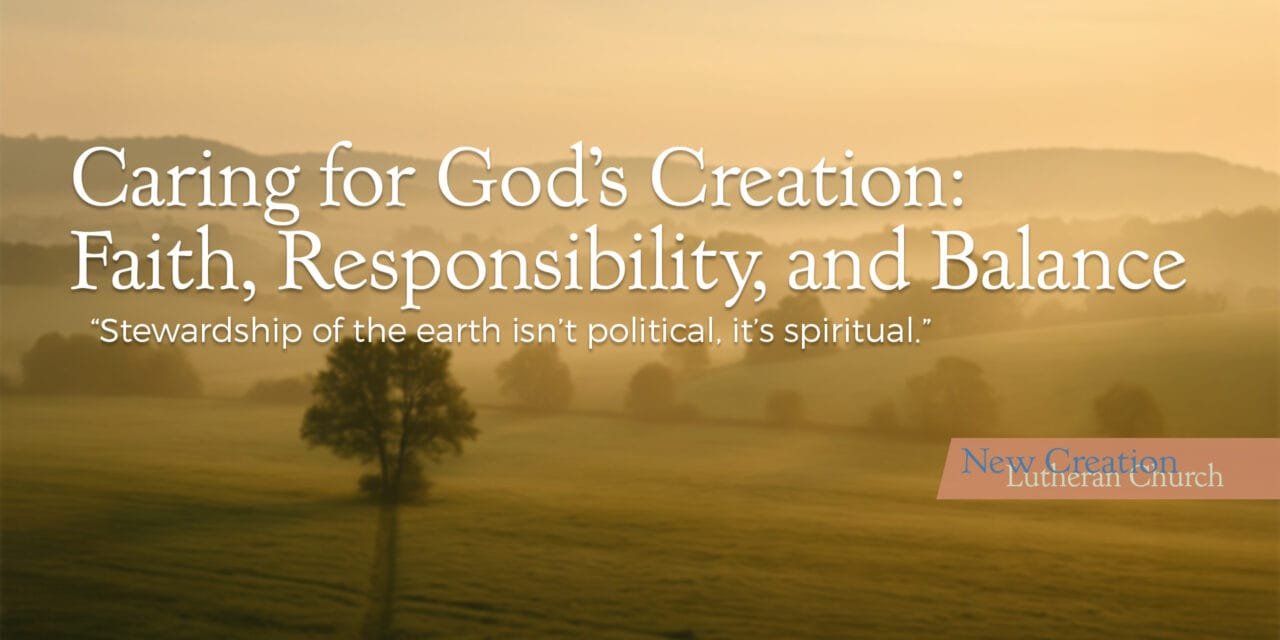

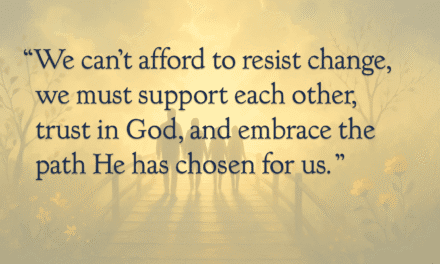
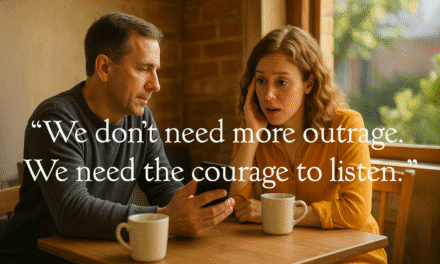
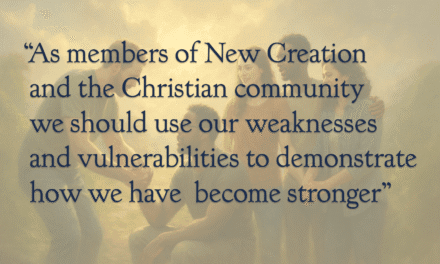


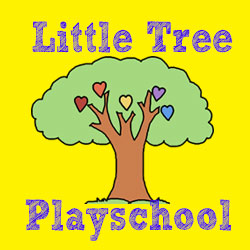
 Our Latest Updates on
Our Latest Updates on
